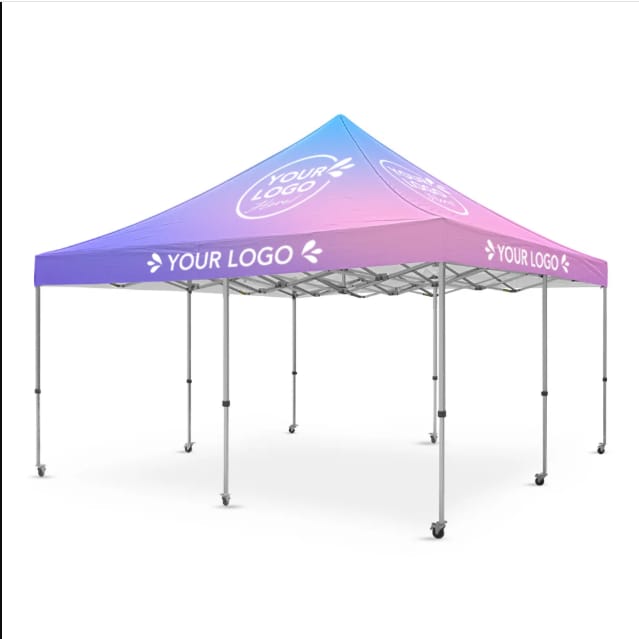
The entrance to a business is more than just a point of entry; it is the first impression customers, clients, and employees have of an establishment. A well-designed commercial door conveys professionalism, security, and attention to detail, setting the tone for what lies beyond. Businesses that invest in high-quality commercial doors signal their commitment to excellence, influencing customer perception and engagement from the outset. In contrast, poorly maintained or low-quality doors can project negligence and deter potential clientele.
Beyond aesthetics, commercial doors play a critical role in functionality. A seamless, well-operating door enhances the ease of access for customers and employees, contributing to an efficient and welcoming environment. Doors that are difficult to open, malfunctioning, or outdated can create frustration and inconvenience, reflecting poorly on a business. Additionally, they can slow down daily operations, leading to inefficiencies that compound over time.
Investing in the right commercial doors also aligns with brand positioning. Whether a business aims for a modern, sleek look or a more traditional and robust feel, the choice of doors can reinforce these values. Glass doors may be ideal for high-end retail stores, while heavy-duty steel doors might be more appropriate for warehouses or industrial facilities. The right selection ensures consistency in brand identity while meeting the specific needs of the establishment.
Security and Protection: A Business Priority
Security is a fundamental concern for every business, and commercial doors play an integral role in safeguarding assets, employees, and customers. A high-quality commercial door acts as the first line of defense against unauthorized entry, theft, and vandalism. Businesses that prioritize security invest in reinforced doors, advanced locking mechanisms, and access control systems, significantly reducing the risk of breaches.
Beyond preventing criminal activity, commercial doors also contribute to overall workplace safety. Fire-rated doors, for instance, provide crucial protection in case of emergencies by containing the spread of flames and smoke. These doors are essential for compliance with fire safety regulations and can be a lifesaving investment. Additionally, doors with panic bars and automated locking systems ensure smooth and efficient evacuation during emergencies, mitigating risks to occupants.
The choice of materials further determines the level of security a commercial door provides. Steel doors offer robust protection against forced entry, while aluminum and reinforced glass doors can provide security without compromising visibility. Understanding the specific security requirements of a business helps in selecting the most effective door solutions that balance safety, durability, and aesthetics.
Energy Efficiency and Cost Savings
As detailed in this comprehensive guide, commercial doors significantly impact a business’s energy consumption, making them a crucial factor in operational cost management. Poorly insulated or outdated doors contribute to energy loss, forcing heating and cooling systems to work harder, which in turn increases utility expenses. Businesses that invest in energy-efficient doors, such as those with proper sealing and insulation, can experience substantial savings over time.
Modern commercial doors are designed to minimize heat transfer, keeping indoor spaces comfortable regardless of external weather conditions. This is particularly beneficial for businesses in extreme climates where temperature control is essential for both comfort and operational efficiency. Insulated doors help maintain stable indoor temperatures, reducing the strain on HVAC systems and lowering overall energy expenditures.
Additionally, energy-efficient doors contribute to sustainability initiatives, which are becoming increasingly important for businesses looking to reduce their carbon footprint. Many commercial door manufacturers offer eco-friendly options made from sustainable materials, further aligning with corporate responsibility goals. By prioritizing energy efficiency, businesses not only save money but also enhance their reputation as environmentally conscious enterprises.
Functionality and Compliance with Regulations
Functionality is a critical factor in choosing the right commercial doors, as businesses must consider both operational needs and regulatory compliance. Doors that are frequently used, such as those in retail spaces, warehouses, or healthcare facilities, need to withstand constant wear and tear while ensuring ease of use. High-traffic areas benefit from automatic or revolving doors that enhance accessibility and streamline entry and exit processes.
In addition to functionality, businesses must ensure compliance with local building codes and safety regulations. ADA-compliant doors, for example, are mandatory in many commercial establishments to provide access for individuals with disabilities. Failure to comply with these regulations can result in fines, legal liabilities, and reputational damage, making it essential for businesses to invest in doors that meet all necessary standards.
For companies navigating the complexities of selecting the right commercial door, understanding door options and compliance requirements can be an invaluable. By understanding the technical specifications, material choices, and installation processes, businesses can make informed decisions that align with their operational and legal needs.
Durability and Long-Term Investment
Investing in high-quality commercial doors translates into long-term cost savings and operational efficiency. Durable doors require less frequent maintenance and replacement, reducing overall expenses associated with repairs and downtime. Businesses that prioritize quality materials, such as heavy-duty steel or impact-resistant glass, benefit from extended lifespans and superior performance.
The longevity of a commercial door depends not only on its material but also on the quality of installation and maintenance. Properly installed doors with precision-engineered components experience fewer operational issues, ensuring seamless performance over the years. Regular inspections and timely maintenance further extend the lifespan of doors, preventing costly repairs or premature replacements.
Moreover, businesses that invest in durable doors enhance their property value. A well-maintained commercial property with high-quality fixtures, including doors, is more attractive to potential buyers or tenants. This makes commercial doors a strategic investment that offers both immediate benefits and long-term financial returns.
Customization and Aesthetic Appeal
Commercial doors are not just about security and functionality; they also contribute to the overall aesthetic of a business. Customization options allow businesses to select doors that complement their brand identity and architectural style. Whether opting for sleek glass panels, bold steel frames, or intricate wood designs, the right door enhances the visual appeal of an establishment.
Modern advancements in door manufacturing offer a wide range of finishes, colors, and materials that cater to diverse business needs. Retail stores, corporate offices, and hospitality venues often opt for aesthetically appealing doors that create a welcoming ambiance for customers and clients. Meanwhile, industrial and manufacturing facilities may prioritize rugged, utilitarian designs that focus on performance and durability.
Incorporating branding elements into commercial doors is another way to reinforce a company’s identity. Logos, etched glass designs, or custom metalwork can transform a functional element into a distinctive brand statement. By investing in well-designed doors, businesses can create a lasting impression that aligns with their brand’s vision and values.
The Bottom Line: A Worthwhile Business Investment
Commercial doors are more than just entry points; they are essential components of business security, efficiency, and branding. From enhancing first impressions to ensuring safety, energy efficiency, and regulatory compliance, the right door choice can have a profound impact on a business’s success. Making an informed investment in high-quality commercial doors ultimately leads to long-term cost savings and improved operational functionality.
By carefully considering factors such as security, durability, customization, and compliance, businesses can choose doors that meet their specific needs while enhancing their overall image. In an increasingly competitive market, even small details like door selection can make a significant difference in shaping customer perceptions and business efficiency. As a fundamental yet often overlooked aspect of commercial infrastructure, investing in the right commercial doors is a smart decision for any business looking to secure its future.
Write and Win: Participate in Creative writing Contest & International Essay Contest and win fabulous prizes.


